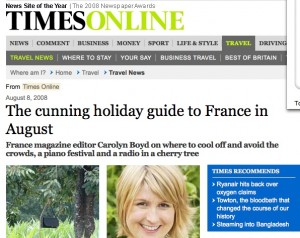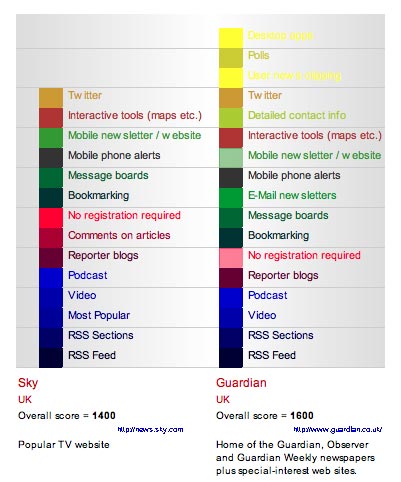Le Figaro is predicting that 20% of its revenue will be generated by its online operations by 2010.
But the French newspaper has plans to beat this, Pierre Conte, deputy managing director for new media and advertising for Le Figaro Group, told delegates at the World Association of Newspapers (WAN) conference today.
After rising from 2 million unique users to its websites to 8 million in two years, the group’s web traffic now accounts for 1 French internet user out of every four.
Last year its online revenues accounted for 13% of its total income – so how will the publisher build on this?
Gradual integration
Online success will only be achieved if all the group’s editorial teams want to take part, Francis Morel, managing director, said.
As such Le Figaro adopted an ‘invite not assign’ policy, giving journalists the opportunity to do work for the websites if they wished (though initially for no extra pay).
According to Morel merging editorial teams for print and online was seen as essential, despite concerns raised by the unions.
Journalists became increasingly enthusiastic about working for the websites and now both editorial teams are on the same floor under the same editorial head, though Morel insists this has been about building bridges and not enforced integration.
Advertising
The group has sought to recoup floundering revenues from print classifieds by making a concerted push with this advertising online, setting up a team to find advertisers for online-only.
Contextual and behavioural advertising is also being experimented with.
E-commerce and diversification
Building around the flagship portal of Le Figaro, the publisher has launched specialist sport, finance and lifestyle websites, in addition to acquiring several e-commerce sites.
Content has also been syndicated to other websites, though this is not a long-term business model, Conte says.
“This business [selling content to other websites] will continue to be weak and limited. We need to work on ad revenue. We are not reinventing anything by saying that, but we need to integrate our sales house.”
Content
News remains a priority online for all the group’s content-based websites. On the Le Figaro site a commenting function has been added to articles and submissions from users are welcomed.
Le Figaro has also set up its own TV studio to produce video clips for online and mobile.
As a word of warning, Morel stresses that the digital developments in these areas have not been at the expense of the print product.
“It is indispensable to continue to invest and focus on print, because while the internet is a key territory, it will not replace print.
“We need to be extremely cautious and prudent. The internet is a very volatile market. We need to be very flexible at any time to change our course because we do not know what tomorrow holds.”

